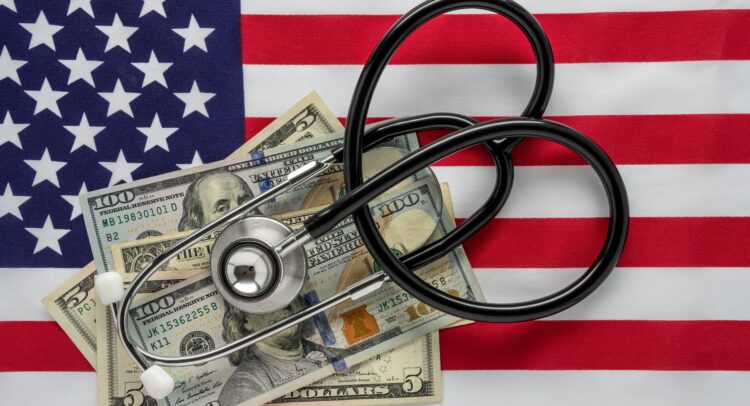Earlier today, the U.S. government announced big price cuts for the first 10 Medicare Part D drugs under the Inflation Reduction Act. These cuts, revealed by the Centers for Medicare and Medicaid Services (CMS), include a 79% drop for Merck’s (MRK) diabetes drug Januvia, which is the steepest reduction on the list. Other notable cuts are 76% for Novo Nordisk’s (NVO) insulin Fiasp and 68% for AstraZeneca’s (AZN) diabetes drug Farxiga. Interestingly, investors do not appear to be too worried, as healthcare stocks are mostly up in today’s trading.
The new drug prices, set to take effect in 2026, are expected to save U.S. taxpayers $6 billion and reduce out-of-pocket costs for Medicare users by $1.5 billion. Unsurprisingly, pharmaceutical companies like Bristol-Myers Squibb (BMY) and Novartis (NVS) are not happy with the new pricing rules. They have criticized the Inflation Reduction Act, saying the price negotiations lack transparency and do not truly reflect the value of their medications.
Novartis, for example, is concerned that these price controls might not actually lead to better patient access or lower costs at pharmacies. Bristol-Myers Squibb, which tried but failed to challenge the Act in court, argues that the law does not really address the issue of how insurance plans set patient out-of-pocket costs.
A Major Change in How Drug Prices Are Negotiated
The Inflation Reduction Act, introduced in 2022, is a major change in how drug prices are negotiated for Medicare Part D beneficiaries, which mainly affects Americans 65 and older. While the CMS’ new authority to negotiate prices is seen as a step toward easing financial burdens for taxpayers and patients, it has also sparked debate.
Drug companies are worried about the fairness and effectiveness of this new pricing system, and there is ongoing concern about how these changes will impact drug availability, innovation, and patient access in the long run.
Which Is the Best Healthcare Stock to Buy Now?
Turning to Wall Street, out of the stocks mentioned above, analysts think that MRK stock has the most room to run. In fact, MRK’s price target of $143.45 per share implies almost 27% upside potential.

Questions or Comments about the article? Write to editor@tipranks.com
















